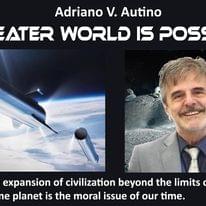They call it the holy grail of artificial intelligence research: Building a computer as smart as we are. Some say it could help eradicate poverty and create a more equal society – while others warn that it could become a threat to our very existence. But how far are we from reaching such “artificial general intelligence”? And what happens if machines, at some point, outsmart us?
In this episode of Techtopia, DW Chief Technology Correspondent Janosch Delcker takes a deep dive into the world of AI, meeting a scientist on the quest for human-level intelligence, and digging into the questions awaiting us as humanity inches closer to AGI.
Chapters:
0:00 Intro.
0:39 What to expect.
1:18 The Iceland case.
3:19 What is “AI”?
5:10: The long history of AI
7:17 The ups and downs of AI
8:12 How close is today’s AI to human-level intelligence?
11:54 What if machines become smarter than we are?
13:30 What will AI look like?
15:45 The ethics of artificial intelligence.
19:13 How far are we from reaching human-level AI?
20:43 The power of Big Tech.
21:23 The Iceland case conclusion.
21:52 Outro.
Subscribe: https://www.youtube.com/user/deutschewelleenglish?sub_confirmation=1
For more news go to: http://www.dw.com/en/
Follow DW on social media:
►Facebook: https://www.facebook.com/deutschewellenews/
►Twitter: https://twitter.com/dwnews.
►Instagram: https://www.instagram.com/dwnews.
Für Videos in deutscher Sprache besuchen Sie: https://www.youtube.com/dwdeutsch






